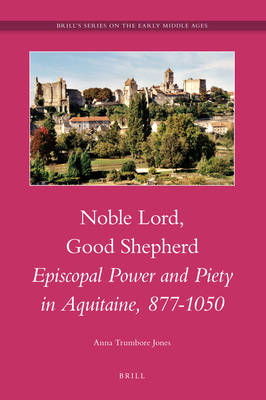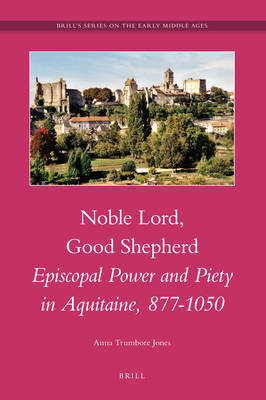
- Afhalen na 1 uur in een winkel met voorraad
- Gratis thuislevering in België vanaf € 30
- Ruim aanbod met 7 miljoen producten
- Afhalen na 1 uur in een winkel met voorraad
- Gratis thuislevering in België vanaf € 30
- Ruim aanbod met 7 miljoen producten
Zoeken
€ 127,42
+ 254 punten
Omschrijving
The bishop was a figure of unparalleled importance in the tenth and eleventh centuries, as he married the advantages of his noble birth to the sacramental and pastoral role of bishop, drawing upon the resultant range of powers to intervene in all areas of life. Scholarship on the episcopate in this period, however, has tended to cluster around two themes: the role of bishops in the fragmentation of the Carolingian Empire and the critiques of these bishops levied by certain church reformers. This book moves beyond these subjects and examines the full scope of bishops' activities in southwest France, as they ruled their cathedrals, interacted with lay powers, patronized religious communities, and wrestled with the complex nature of their office.
Specificaties
Betrokkenen
- Auteur(s):
- Uitgeverij:
Inhoud
- Aantal bladzijden:
- 276
- Taal:
- Engels
- Reeks:
- Reeksnummer:
- nr. 17
Eigenschappen
- Productcode (EAN):
- 9789004177864
- Verschijningsdatum:
- 1/10/2009
- Uitvoering:
- Hardcover
- Formaat:
- Genaaid
- Afmetingen:
- 163 mm x 241 mm
- Gewicht:
- 544 g

Alleen bij Standaard Boekhandel
+ 254 punten op je klantenkaart van Standaard Boekhandel
Beoordelingen
We publiceren alleen reviews die voldoen aan de voorwaarden voor reviews. Bekijk onze voorwaarden voor reviews.











